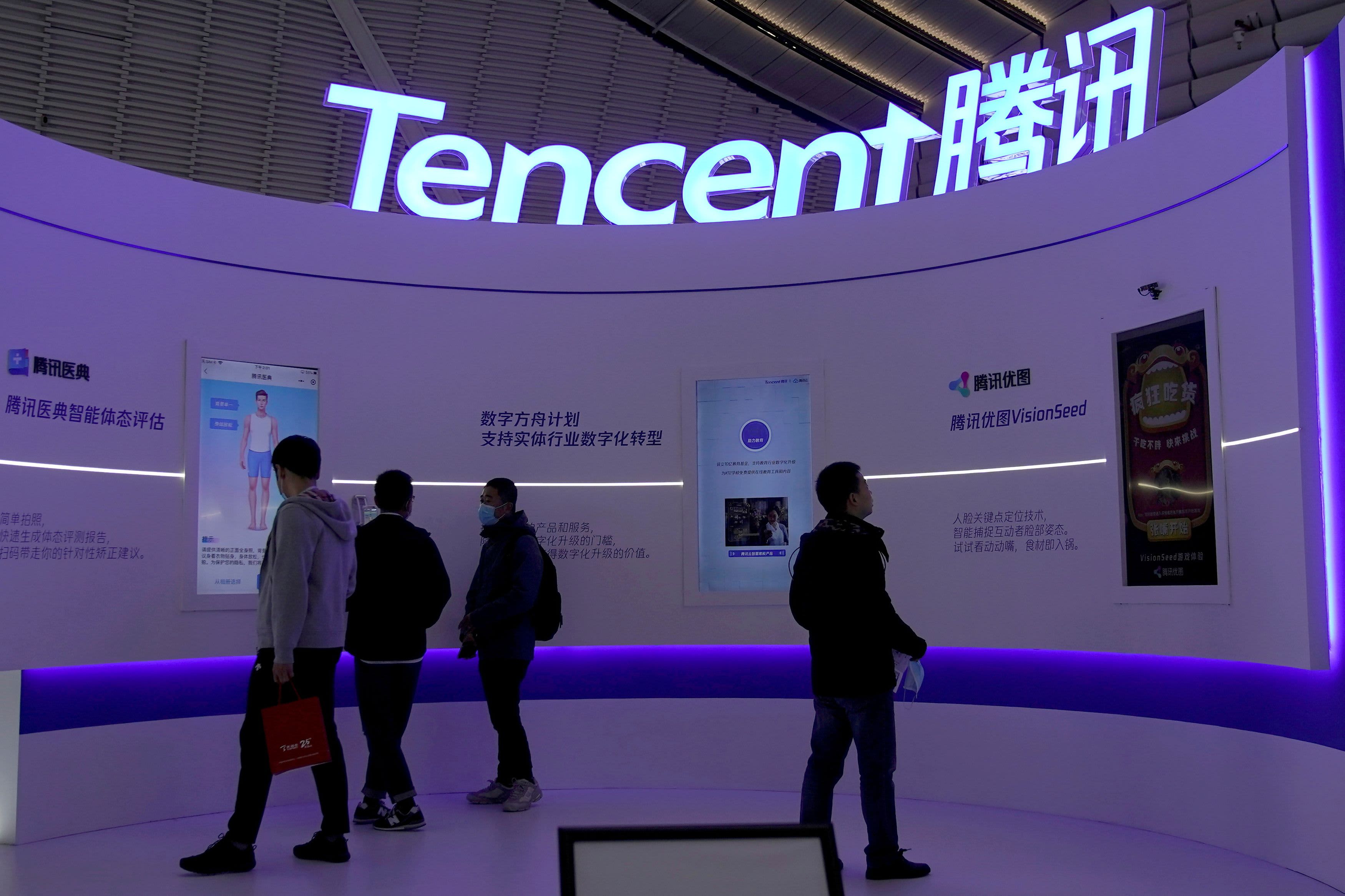Tencent tanks 10% after Chinese media calls online gaming ‘opium’ as regulatory concerns mount

A logo of Tencent is seen during the World Internet Conference (WIC) in Wuzhen, Zhejiang province, China, November 23, 2020.
Aly Song | Reuters
GUANGZHOU, China — Shares of Tencent and NetEase plunged on Tuesday after Chinese state media branded online gaming “opium” and likened it to a drug.
The article also called for further restrictions on the industry in order to prevent addiction and other negative impacts on children.
Tencent fell around 10% in morning while NetEase was almost 14% lower in Hong Kong. Tencent is one of the world’s largest gaming companies responsible for high-profile games like “Honor of Kings.”
NetEase declined to comment. Tencent was not immediately available for comment.
The article, by Economic Information Daily, a Chinese state-run publication that’s affiliated to the official Xinhua newspaper, said that online gaming addiction among children is “widespread” and could negatively impact their growth.
The article said that in 2020, more than half China’s children were nearsighted and online games affects their education.
The sentiment in the article is not that new. For a long time, the Chinese government has been concerned about the impact of video games on minors.
In 2018, Beijing froze new game approvals over concerns that gaming was impacting youngsters’ eyesight. In China, online games require approvals from the regulators.
In 2019, China brought in rules that banned those under 18 years from playing online games between 10 p.m. and 8 a.m. and restricted the amount of time they could play.
The article also called for more control over the amount of time children are playing games for and review content of games more stringently to reduce the amount of “improper” information shown to minors.
“For the next step, there should be stricter controls over the amount of time minors play online games. It should be reduced by large amount from current level,” the article said, according to a CNBC translation.